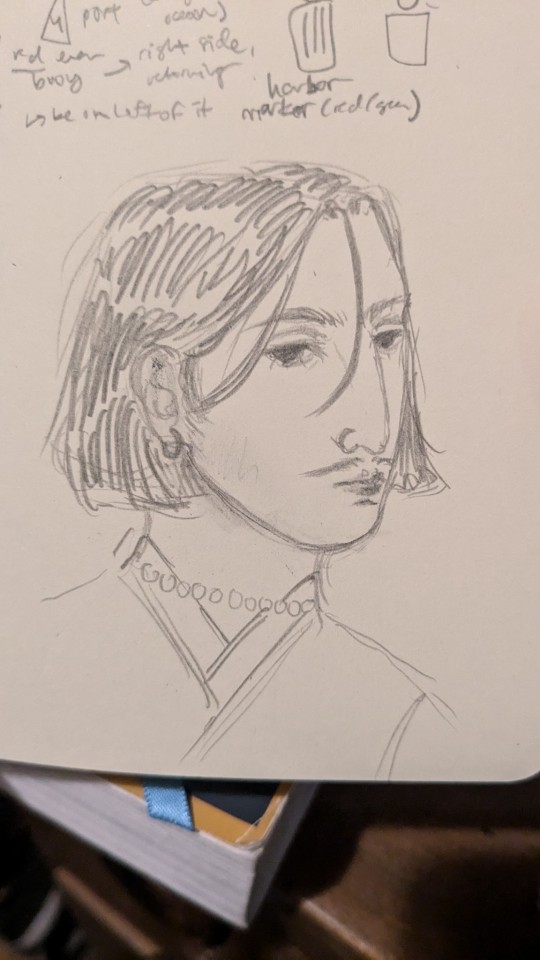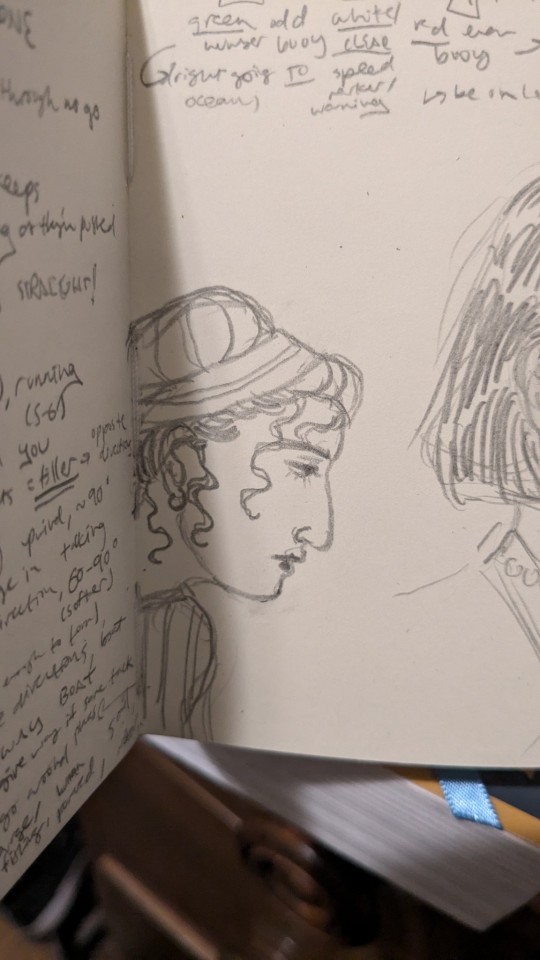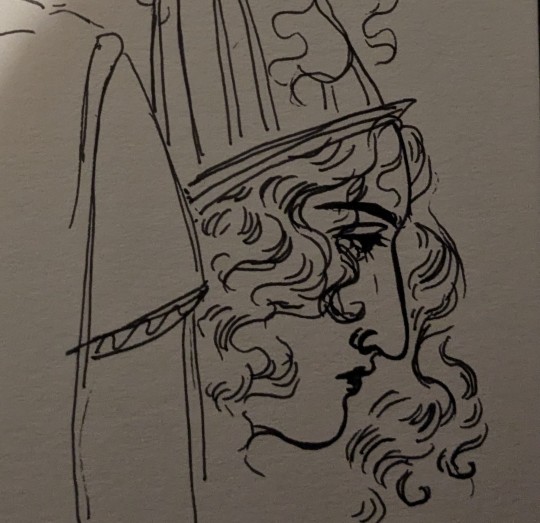#early modern central india ocs for history class
Explore tagged Tumblr posts
Text









Comprehensive everything I've drawn (no non-lazy things I fear) in the last like 6 months compilation!!!! I love history
#charles vi#charles the vi of france#the mad king#guanyin#kannon#prince Siddhartha#buddhism#french history#medieval history#vasilisa the beautiful#slavic folklore#richard ii#hundred years war#lefty of poncho and lefty fame ..#cowboys..#early modern central india ocs for history class#historical ocs#my art
11 notes
·
View notes
Text
1
The United Kingdom of Great Britain and Northern Ireland Coast of Arms (Royal) - Seperated from the continent by Strait of Dover and The English Channel - seperated from Ireland by the Irish sea and St. George’s channel - located off the NW show of Europe
GEOGRAPHY The British isles archipelago ENGLAND - Consists of low plains, major hill regions are situated to the N and W. WALES - Country of hills and mountains with high plateaus and ranges divided by river valleys. In the S, W and N are narrow coastal plains while the rest of the area is occupied by the … SCOTLAND - Can be divided into 3 typographical regions: 1. The Northern Highlands
2. The Central lowlands - valleys of river Clyde
3. The Southern Uplands - moorland cut by rivers and valleys NORTHERN IRELAND - Consists of low lying plateaus and hills THE HIGHEST PEAK = Ben Nevis (1,343 m)
THE LONGEST RIVER = Severn
THE LARGEST LAKE = Lough Neagh
MEMBERSHIP = UN, Commonwealth EU (Brexit in progress) G7, G8, G20, NATO, OCED, WTO NAMES ALBION (means white country)
BRITANNIA (female symbol)
IONA (Ireland of Northland)
BRITISH ISLES (Geography)
GREAT BRITAIN (biggest island plus political name)
UNITED KINGDOM (political)
ENGLAND, SCOTLAND, WALES, NORTHERN ISLAND (4 nations of UK) both political plus geographical
FORMATION
- 1707 Acts of Union of England and Scotland
- 1801 Acts of Union of Great Britain and Ireland
- 1922 Irish Free State Constitution Act > Ireland was divided
PEOPLE - 4 nations
- Population: 63 mil (2011 Census), 65.6 mil (2016 estimates): ENGLAND - 53 mil; SCOTLAND - 5.3 mil; N. IRELAND - 1.81 mil; WALES - 3.6 mil
- The English and lowland Scots are of Anglo-Saxon and Norman origin
- The Welsh, the N. Irish and the Scottish highlanders are of mainly Celtic descent
- The islanders around Scotland are of Viking (Norse) descent
OFFICIAL LANGUAGE = ENGLISH
RECOGNIZED = SCOTS, ULSTER SCOTS (Northern Ireland), WELSH, CORNISH (England), SCOTTISH GAELIC, IRISH
ADMINISTRATIVE DIVISION
- Consists of 4 countries
- Divided into so-called standard regions (vyššie územné celky)
- Scotland is 1, Wales is 1, only England is divided. (nemajú okresy, ale grófstva)
at that time wales wasn't independent, it belonged to England when UNION JACK /flag/ was created
- The UK has sovereignty over 17 territories which do not form part of the UK itself; 3 crown dependencies (Isle of Man, Jersey, Guernsey) kráľovské dŕžavy; inštitút koruny
- 14 British Overseas Territories (e.g. Bermuda, Gibraltar, Saint Helena - zámorské územia, Falkland Islands,..)
CROWN DEPENDENCIES
- Have a historical relationship with the British crown
- Are self-governing
- Have their own independent legal system, legislature, tax system, and administrative structure.
- British government is responsible for their foreign relations and defense.
- Ruled by Lieutenant Governor appointed by British government BRITISH OVERSEAS TERRITORIES
- Do not form part of the UK itself
- Fall under its jurisdiction - Remnants of the British empire that have not acquired independence or have voted to remain British territories
- Known as Crown Colonies before 1981
Sign of bulldog - resistance Sign of lion - strength
WEEK 3 - PEOPLE AND IDENTITIES - The make up of British population is the result of a long historical process of absorption of invaders and immigrants from abroad - They left a significant cultural and linguistic mark on British population and thus formed what we know as ‘British culture’
CELTIC TRIBES
- Prehistory /600 BC - 43 AD/
- Celtic Tribes arriving from mainland Europe
- Brought Iron Age culture
- No written records remained
- Monumental architecture (Stonehenge)
THE ROMANS
- Military occupation /43 - 410 AD/
- Roman province called Britannia (present day England and Wales)
- Founded towns (e.g. Londinium), build roads
- Place names (ending in chester)
- Hadrian’s Wall
- and of 4th century = estimated population of Roman Britain was cca 4 mil. = 125,000 Roman army
GERMANIC TRIBES
- Angles, Saxons, Jutes
- 410 - 1066 AD
- Came from Northwestern mainland Europe
- Pushed Celts to hilly areas (e.g. Scotland)
- Formerly pagan (not Christianity)
- 432 St Patrick converted Ireland to Christianity
- 597 St Augustine introduces Christianity to England, builds headquarters in Canterbury
- Jutes absorbed by Angles and Saxons
- Anglo - Saxon England dominated by HEPTARCHY = the kingdoms of Northumbria, Mercia, East Anglia, Essex, Kent, Sussex and Wessex - In 10th century the individual kingdoms unified unclear the rule of Wessex into the Kingdom of England
- The name England
VIKINGS
- Norsemen and Danes from Scandinavia
- Mostly raids of coastal areas started in 9th century
- Mostly North and West of Scotland and Northern Islands
- Danelaw
- Merged over time with by intermarriage into the Anglo-Saxon population
- Enriched English language
NORMANS
- 1066 The Battle of Hastings
- Military invasion
- William II. Duke of Normandy (The Conqueror)
- Feudal system and system of government imposed
- The Domesday Book 1086 revealed only 5% of land in England in English hands
- English emigration = following the conquest many Anglo-Saxons fled to Scotland or Ireland
- Elimination of slavery in England
- Estimated 8000 Normans and other continentals settled in England
- Old English language displaced by Anglo-Norman (French words entered English language)
- A century after the invasion intermarriage became common
- The first Census took place in 1801 = population of Great Britain was 10,5 mil.
- The 1841 UK Census = England and Wales 15,9
, Scotland 2,6
, Ireland 8,2
- The 2011 Census revealed that 11,9 % of UK population was born abroad
- the UK population in 2011 = 63 mil.
S: NATIONAL IDENTITY
- is a person’s identity and sense of belonging to one state or to one nation, a feeling one shares with a group of people, regardless of one’s citizenship status
SOURCES OF NATIONAL IDENTITY: language, history, national symbols, religion, culture, blood ties = family, cuisine, music
The Scots = strongest national identity English = weakest
SCOTTISH NATIONAL IDENTITY
- national costume, skirts /kilts/, bagpipes
- traditional Scottish meal haggis - they eat it once a year , Scottish whiskey
- 2 different languages, independent history, diff banknotes, flag,..
WELSH NATIONAL IDENTITY
- own welsh language
- dragon - official flag, Welsh Corgi = welsh breed of dog, music and poetry, love of singing. History of welsh = History of England
NORTHERN IRELAND IDENTITY
- only religion matters
- used to be catholic (republicans)
- protestants = loyalists = loyal to the queen
- beautiful nature, language - ulster scots, Irish language
ENGLISH NATIONAL IDENTITY
- own flag, flower
- It doesn't have its own political institutions.
- Most difficult to define out of British.
WEEK 4 - MULTICULTURAL SOCIETY AND CLASS MULTICULTURAL BRITAIN
- Britain has a long history of absorbing people from different cultural or ethnic groups
- Today, the UK can be unquestionably described as an ethnically diverse multicultural society
- The UK has long adopted a policy of multiculturalism in relation to immigrants
- Migration has transformed and enriched British cultural identity
MULTICULTURALISM
- Implies a positive endorsement of cultural diversity
- The Oxford Dictionary defines it as the policy or process whereby the distinctive identities of the cultural groups within such a society are maintained or supported
- As a descriptive term it refers to cultural diversity where two or more groups with distinctive culture exist in a society
TWO THEORIES OF MULTICULTURALISM
1. MELTING POT = Assimilation
a metaphor for a heterogeneous society becoming more homogenous, the different elements ‘melting together’ into a harmonious whole with a common culture.
2. SALAD BOWL = Integration
- Integration of many different cultures, as the ingredients of a salad
- Cultures are juxtaposed but do not merge into a single homogenous culture
- Each culture keeps its own distinct qualities
MULTICULTURAL BRITAIN
- Migration to the UK has been constant since the early 19th century
- It has been estimated that over 9 millions immigrants have moved to the UK in the last two centuries (2,4 mil before 1945)
- Before 1945 immigrants from Europe
- Since 1945, largely from former British colonies (South Asia, the Caribbean and Africa)
- The last decade = EU countries
BEFORE 1945
- IRISH PEOPLE - Mid 19th Century, After The Great Famine in Ireland (caused by potato blight)
- Came as unskilled workers
- knew the language
- geographical nearness
SINCE 1945
- New Commonwealth Countries
- Especially in the 1950s and 1960s
- Invited by the British government after WW II.
- Came as economic immigrants
- Skilled workers
- Mostly for National Health Service and Transport
- Mostly people from former British colonies
- People from India, Bangladesh, Pakistan, the Caribbean
- Heavy members of migrants resulted in the change of immigration policy and attitudes towards migrants
- 1968 Enoch Powell ‘Rivers of Blood’ speech in which he criticized immigration to the UK from New Commonwealth countries
- Immigration has also generated social tensions, e.g. in the 1970s when unemployment was high
- The UK has passed Race Relations Act (1965 and 1975) which bans discrimination on the grounds of race, colour or nationality
MODERN BRITAIN
- The UK immigration policy continues to welcome visitors and skilled workers from abroad
- in the last few years it has also become a stated aim of the UK immigration authorities to: > strengthen the country’s borders,
> restrict the number and availability of work and student visas,
> implement a more structured visa application process,
> ensure that foreign nationals ‘'earn'' the right to acquire UK nationality
CLASSING BRITAIN: SOCIAL STATUS AS PART OF IDENTITY
- Britain has been described as a country historically obsessed by social class
- Changes British society has experienced since the WW II have had a considerable impact on the social landscape
- However, to describe the UK
TRADITIONAL UNDERSTANDING OF CLASS
- Upper class > very small, hereditary landowners, the rich
- Middle class > the most numerous, fragmented
- Working class > traditionally manual workers
- Underclass
S: ATTITUDES
- is an expression of favor or disfavor toward a person, place, thing, or event.
- can be formed from a person’s past and present
- is also measurable and changeable as well as influencing the person's emotion and behavior
STEREOTYPE
- is any commonly known public belief about a certain social group or a type of individual
- Stereotypes are often confused with prejudices, because, like prejudices, a stereotype is based on a prior assumption
- Stereotypes are often created about people of specific cultures or races
Prejudice = a judgement or opinion formed before the facts are known, preconceived idea
auburn = fancier word for ginger
hobbies = gardening, love of nature, animals, driving on the left, privacy
NORTH / SOUTH DIVIDE
SOUTH = Consumer good industry, company headquarters, good transport service, expensive houses, better career opportunities, healthier people, tourism, richer region
NORTH = Manufacturing industry, branches of companies, inadequate infrastructure, cheap houses, difficult to move, higher level of unemployment, higher mortality rates, outflow of people to the south, poorer region
PREDN W5:
MONARCHY - CEREMONIAL - BRITAIN
- CONSTITUTIONAL - has parliament, government, monarch doesn't have a power, only parliament,.
We say: her majesty’s parliament, etc. > it’s just a image
Longest British monarch > ELIZABETH II.
Crown is inherited. Next is Prince Charles, William, George. - Since 17th cnt. Only Protestant can become a king/queen.
- 6.2.1952 - Elizabeth II. became a queen after her father died
- 1953 - coronation. > same queen ever since, but 10 different parliament
5 official residences > if queen is there, there’s a flag. She only often goes to Scotland.
- She has a schedule of where she is every year
- Royal family don't have to pay taxes
- Since 1993 queen decided to willingly pay
- Queen has a power to declare a war > in her name, she has a right to pardon the offenders /people released from jail/ = THEORETICAL POWERS
- She appoints the prime minister, right to appoint the judge, members of house
- Every legal document needs a signature of queen, they bring her a red box of papers to sign once a week. She also meets prime minister once a week.
- They have a telephone call if they are somewhere else. She can only warn him, give her advice,..etc.
- Monarch has to be politically mutual - Queen is commander of chief, top of curry, head of executive, she appoints the judges
S W5: THE POLITICAL LIFE
POLITICS OF THE UK
- The UK is a democracy and constitutional monarchy
- Head of the country = the Monarch
- Head of government = the Prime Minister
- www.politics.co.uk
3 BRANCHES OF POWER:
1. EXECUTIVE = HM’s Government, devolved governments of Scotland and Wales, and Northern Ireland Executive
2. JUDICIARY = The Supreme Court of the UK
3. LEGISLATIVE = 2 chambers of the Parliament of the UK, Scottish Parliament, Welsh and Northern Ireland assemblies (zhromaždenie) POLITICAL SYSTEM
- Multi-party system
- Since 1920’s, the largest political parties have been Conservative and Labour = sometimes the UK named 2-party system.
- Since 1945 one of the two big parties has by itself controlled the government
- Following June 2010 General Elections - Coalition government (1st formal coalition government since WWII.)
- May 2015 General Election = Conservatives won with working majority of 12 seats.
- June 2016 Referendum = BREXIT vote = resulted in the British electorate voting to withdraw from the European Union by 52% to 48%, D. Cameron resigned.
- June 2017 = a snap election /predčasné voľby/ = called by PM
May with the stated aim of securing a majority for Brexit negotiations
THE GOVERNMENT - Head is the PM
- Contains a member of ministries, known as departments led by a Government Minister (often a Secretary of State). - e.g. Department for Education
- Implementation of the Minister’s decisions is carried out by a permanent politically neutral organization known as the civil service /štátny aparát/
- Civil service is the permanent bureaucracy or secretariat of Crown employees that supports Her Majesty’s Government.
THE CABINET = is the collective decision = making body of HM’s Government of the UK
- composed of the Prime Minister and some 22 Cabinet ministers, the most senior of the government ministers
- Cabinet ministers are heads of government departments
THE PRIME MINISTER
- appointed by the Monarch
- the leader of the political party with an absolute majority of seats in the House of Commons
- If no party has an absolute majority, the leader of the longest party is given the first opportunity to form a coalition
- Selects the Ministers
- No. 10 Downing Street, London
POLITICAL PARTIES
- Conservative Party (Tories)
- Labour Party - Liberal democrats (Whigs)
- Green Party of England and Wales
- The United Kingdom Independence Party
- The Scottish National Party
- Plaid Cymru (Welsh nationalist party)
- The British National party
LABOUR PARTY
- Centre-left political party
- Leader = Jeremy Corbyn
- emphasizes greater state intervention, social justice and strengthening workers' rights
- founded in 1900, having grown out of the trade union movement and socialist parties of the 19th cnt.
- was most recently in government from 1997
CONSERVATIVE PARTY
- Centre-right political party
- Leader = Theresa May
- believes that free markets and individual achievement are the primary factors behind economic prosperity
- favoring close ties with the United States
- has generally supported a pro free-trade foreign policy
- support the maintenance of the United Kingdom
0 notes